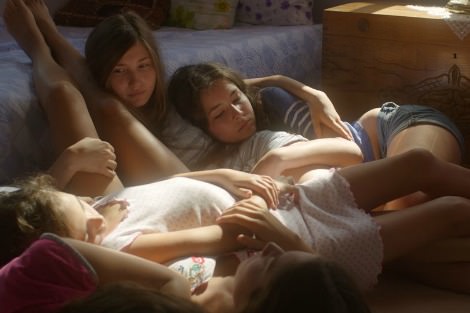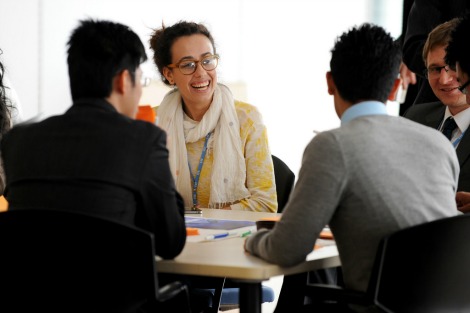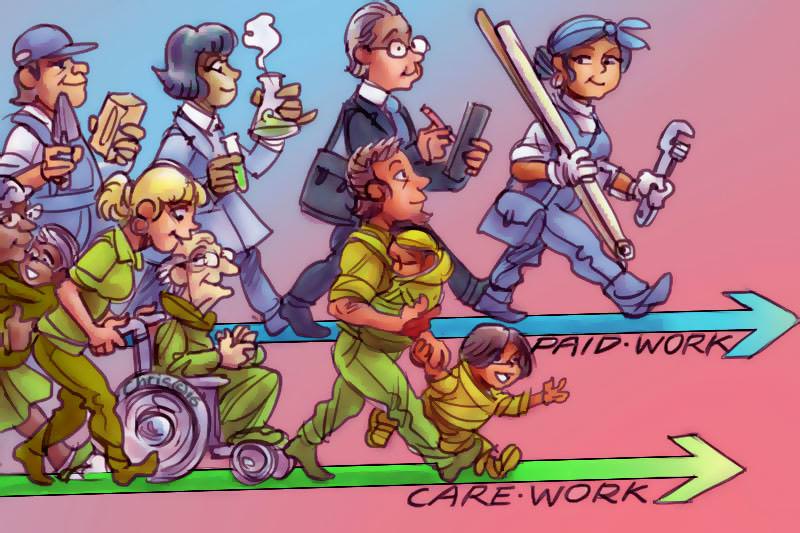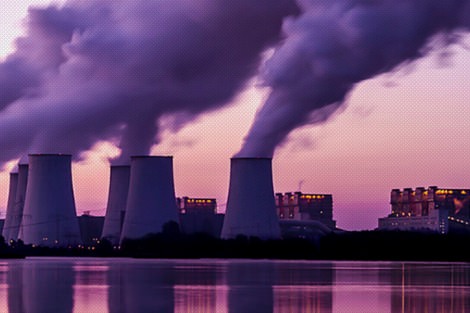Keywords: Super
There are more than 200 results, only the first 200 are displayed here.
-

ENVIRONMENT
- Greg Foyster
- 02 February 2017
10 Comments
If climate change were a short-term problem, polarisation wouldn't be so crippling. One side could push a solution through parliament, and by the time the other side took power it might be a non-issue. But climate change is an extraordinarily long-term problem that requires massive investment in new infrastructure and consistent policy settings over decades. It needs a supermajority of support so years of work isn't undone with each change of government. That means getting conservatives on board.
READ MORE 
-

ECONOMICS
- Rachel Kurzyp
- 16 December 2016
8 Comments
Studies have found that in Australia, groups with the poorest financial awareness and skills are those under 25, those with no formal post-secondary education, those on low incomes and working 'blue collar occupations', and women. While it makes sense to provide these groups with financial information on home loans and super, this wouldn't have helped my mother when she had to decide between, say, buying groceries for the week or getting the car serviced.
READ MORE 
-

ARTS AND CULTURE
- Tim Kroenert
- 14 December 2016
3 Comments
Amid the noise of Batman battling Superman, the Avengers turning against each other, and middle aged fanboys whingeing about the Ghostbusters franchise being revitalised with an all-female lead cast, 2016 has actually been a pretty solid year for movies, both in and outside of Hollywood. We haven't had time to see them all (we have a magazine to publish, after all) but nonetheless here is a list of our ten favourite films reviewed in Eureka Street this year.
READ MORE 
-

INTERNATIONAL
- Patrick McCabe
- 29 November 2016
3 Comments
Someone I read in high school, so probably Shakespeare, once said 'The past is a foreign country, they do things differently there.' Well, whoever it was clearly hadn't been to Stratford-upon-Avon (so maybe not Shakespeare then). Here, you truly can visit the past, without a passport. As one peruses the shops, houses, supermarkets and ATMs, one cannot help but speculate as to the links between Shakespeare's works and what must have been the commonplaces of his everyday life.
READ MORE 
-

AUSTRALIA
- Sonia Nair
- 28 November 2016
11 Comments
Belonging to a generation where I was constantly told I could do anything I set my mind to, I was carted off to every class imaginable as a young child - art class, violin class, music theory class, English literature tutoring and so forth. But the advent of unparalleled choices that was constantly peddled to me did not coincide with an increase in the spaces that are available for young people to excel, or much less be employed, in the fields of their choice.
READ MORE
-

AUSTRALIA
- Kate Galloway
- 25 November 2016
2 Comments
Civil society requires care work. All of us, at various stages of our lives, will be dependent on others for our daily needs. Most of us will likewise care for others at some point. The challenge is how to allocate caring responsibilities throughout society, while allowing also for the paid work that secures economic independence. At the moment the tacit expectation that women will do unpaid care work - and that men (theoretically) are unburdened by care work - contributes to economic inequality.
READ MORE
-

RELIGION
Two days after his election, the communications team of General Congregation 36 sat down with Father General Arturo Sosa to discuss his life and thought. The conversation introduces the new Superior General in a way that is more personal, to Jesuits and the wider Ignatian family around the world.
READ MORE
-

ECONOMICS
- David James
- 13 September 2016
18 Comments
The argument that putting government operations into private hands ensures that things will run better and society will benefit is not merely a stretch; it is in many respects patently false. The argument is based on the claim that the market always produces superior price signals. Yet one area where private enterprise definitely fails is long term stability. If there is an expectation that a privatised service should last in the long term, and usually there is, then selling it to business is a bad choice.
READ MORE 
-

ENVIRONMENT
- Thea Ormerod
- 09 September 2016
10 Comments
With the grip of climate change tightening, few seem to understand the urgency of the crisis. This is why the announcement of over 3500 churches in the UK switching to clean power is so significant. At last, a solution presented by religious communities that matches the scale of the problem. They are providing the kind of leadership for the needed transition to an ecologically sustainable future. Unfortunately, one reason why it is so exciting is that we're nowhere near this in Australia.
READ MORE 
-

ENVIRONMENT
- Thea Ormerod
- 21 June 2016
4 Comments
An accelerating number of institutions and individuals are moving their money out of planet-heating fossil fuels and into climate solutions. The total assets guided by some form of divestment policy was $3.4 trillion at 2 December last year, 50 times more than what was up for divestment 12 months earlier. It sounds like a lot, but it's a small amount compared to the $100 trillion-plus invested in the usual way. That's our money, in banks and super funds, managed funds and insurance companies.
READ MORE 
-

INTERNATIONAL
- Catherine Marshall
- 27 May 2016
3 Comments
In 2013 I attended an event so exclusive, so unique, it wouldn't happen again for another 144 years. It was the Maha Kumbh Mela in Allahabad, Uttar Pradesh, where, over a six-week period, an estimated 120 million Hindu pilgrims converged on the banks of the Ganges, Yamuna and mythical Sarasweti Rivers in order to perform puja, or the cleansing of their sins. If we're open to what travel seeks to teach us, we'll gain from it the most superior of educations, and the most profound lessons in humility.
READ MORE 
-

ARTS AND CULTURE
Despite its epic scope it is also deeply intimate and, dare I say, spiritual. Roy regards his son with a mixture of stern, protective love, and helpless wonder. They are joined in their quest by Roy's childhood friend Lucas, a state trooper converted to Alton's cause after literally seeing the light in his eyes. Also by Alton's mother, Sarah, who of all the cohort has the most direct experience of the 'sense of awe' that ultimately unfolds from the 'mystery' of Alton's story.
READ MORE 